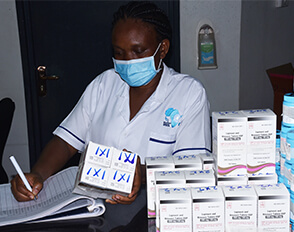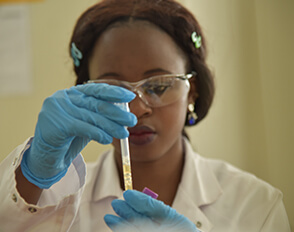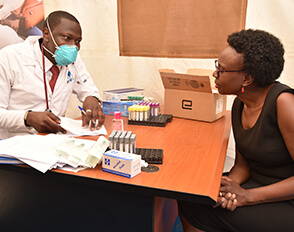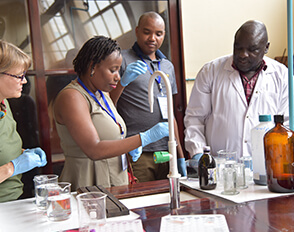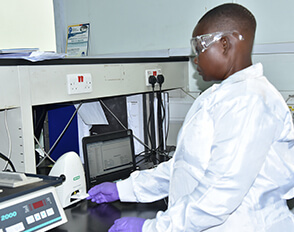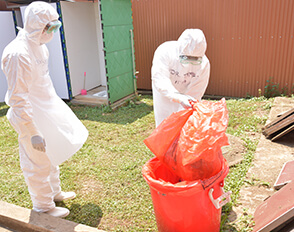
The Kampala Metropolitan Area’s rapid progression into its second COVID-19 wave was marked by a thirteen-fold increase in cases between April 2021 and May 2021. In order to contain the rapidly escalating situation, the health leadership within Kampalathe City, Wakiso, and Mukono districts identified priority actions required to mount an effective response.
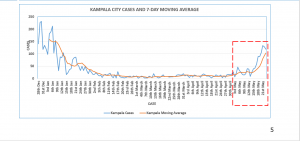
However, with the national fiscal year coming to an end, very limited government funds were available to support the execution of the identified priority actions. The health partners too had limited resources following heavy investment in the response to the first COVID-19 wave.
In order to mobilize the resources required, the Infectious Diseases Institute (IDI) supported the Kampala Metropolitan Area Public Health Emergency Operations Centre (KMA PHEOC) in establishing a regional partner engagement platform.
The KMA PHEOC mapped out the region’s health partners who came together to highlight the resources in place, what was lacking, and opportunities for partner support. Based on the mutual benefits of having coordinated partner effort, partners were compelled to commit resources to support the response.
The KMA PHEOC coordinated the deployment of partner support across the region to prevent the duplication of effort and fragmentation of outcomes.
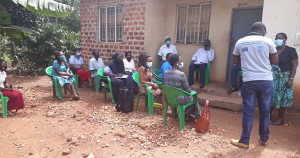
About (75%) seventy-five percent of the initial priority actions identified (like routine community surveillance activities and operationalization of the Community Engagement model for Home-Based Care) received support from the partners.
Through this platform, the KMA outbreak situation and the partner efforts to support the response were routinely monitored and shared. As a result of this partner collaboration, the KMA managed to timely boost capacity to respond to the surge in COVID-19 cases.
The KMA COVID-19 Partner Engagement Platform has since become a mainstay of KMA efforts to mobilize and account for COVID-19 response partner support. The region is currently considering scaling up this platform to cover all public health events.
This facilitated partner collaboration and efficient allocation of resources. began to decline by mid-June 2021 leading to success of response.

